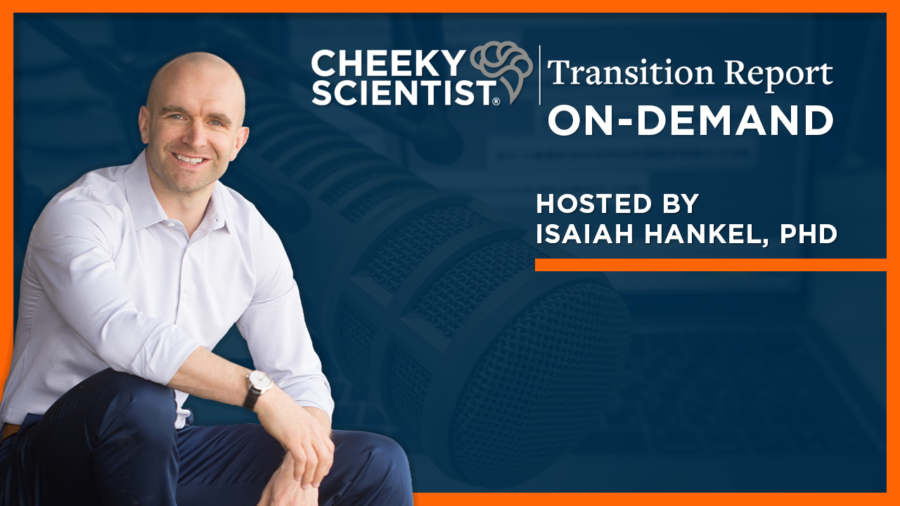Hosted By

Chief Executive Officer Cheeky Scientist

Join Isaiah as he explores how to prepare for an interview presentation and the two main things you should consider to ensure your presentation is memorable
Here’s a quick rundown of this week’s episode…
- First, Isaiah discusses what you should consider and the questions you should ask if a hiring manager asks you to do an interview presentation
- Next, Isaiah explains the importance of knowing the main message of your presentation and the best way to convey that to your audience
- Finally, Isaiah highlights why you should keep your audience in mind at every step of your presentation
From This Week’s Show…
How To Prepare For An Interview Presentation
When it comes to creating effective industry presentations, you must consider what your audience wants to see. In this case, your audience is the company. Most often, the hiring manager you’re in contact with will give you a short “brief” to help you prepare for the presentation.
The most common brief is simply: “Talk about yourself, your interests, and your work in ten minutes.” Other common industry interview briefs include: “Discuss your work on XYZ and how it relates to our business model” or “Review a paper/clinical trial report and summarize the findings the way you would for one of our clients/partners.”
If you are asked to give an interview presentation, make sure you ask:
- How much time will I have for my presentation?
- Who will be sitting in on my presentation?
- Is there anything specific that my presentation should cover?
These questions will not only help you prepare for the presentation but they will also show initiative, which is a very positive transferable skill employers look for at the end of the interview process.
What’s The Purpose Of Your Presentation And What’s The Best Way To Convey Your Message
Effectively communicating, during an interview presentation or otherwise, comes down to only two root considerations: your purpose and your audience.
When it comes to communicating your purpose, ask yourself, What goal do I want my presentation to accomplish? What is the main message I want to convey?
Your purpose should direct every decision you make about your presentation. It should guide what information you include in your slides, in what order you present your slides, and even how you speak.
Despite its importance, many PhDs fail to set a purpose for presentations, and the consequences of this are painfully obvious. The result is typically a presentation that explores topics and ideas without offering anything concrete to act on.
This is a cardinal sin for any industry role or company. The mantra of industry is “innovate or die.” Ideas, conclusions, and the like must be actionable.
Remember, if you don’t know what message you’re trying to get across as a presenter, your audience won’t either, and your presentation will fail.
Why You Should Always Keep Your Audience In Mind During Your Interview Presentation
Even the most well prepared presentation will lack impact if it doesn’t resonate with the audience. Unfortunately, many PhDs focus only on what works for them when planning their presentation rather than what is best for their audience. You should account for your audience in every decision you make about your presentation plan, from what time you present to what order you present your slides in.
For example, you don’t want to present right before lunch, even if the timing would be most convenient for you. Your audience will likely be hungry and unable to focus. You also don’t want to cram tons of information into your slides—even if it helps you avoid skipping important details—because it will overwhelm your audience.
Instead, make sure every slide makes just one point, includes a single image, and contains as little text as possible. In this way, you will eliminate distractions and add clarity to your presentation.
Gather and consider all the information you have about your audience ahead of time. How many people will be in the audience? Do audience members have a technical or business background? Are audience members mostly Millennials, Zoomers, or Baby Boomers? What is the nationality of your audience? This information will help you decide what data, stories, and speaking styles will most likely connect with your audience.
If you’re ready to start your transition into industry, you can apply to book a free Transition Call with our founder Isaiah Hankel, PhD or one of our Transition Specialists. Apply to book a Transition Call here.










